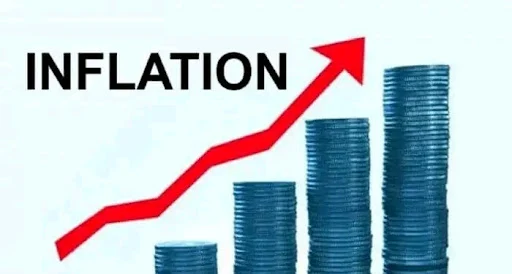As Nigerians grapple with unprecedented economic challenges, a pressing question arises: Is the current hardship a consequence of essential reforms, or is there an element of deliberate sabotage exacerbating the situation?
Since assuming office on May 29, 2023, President Bola Ahmed Tinubu has implemented significant economic reforms, notably the removal of fuel subsidies and the unification of the foreign exchange market. While these measures aim for long-term stability, their immediate effects have been severe, leading to skyrocketing prices and widespread public discontent.
The Inflation Crisis: Unprecedented Surge in Prices
Recent data from the National Bureau of Statistics (NBS) indicates that Nigeria's inflation rate surged to 28.92% in December 2024, marking a two-decade high. Food inflation is even more alarming, exceeding 32%, with staples like rice becoming prohibitively expensive. As of February 2025, a 50kg bag of rice costs over ₦100,000, a significant increase from ₦40,000 in the previous year.
Transportation costs have also escalated dramatically. The removal of fuel subsidies led to a surge in petrol prices, now exceeding ₦900 per liter, up from ₦200 per liter in early 2023. Consequently, travel expenses have tripled, with a journey from Abuja to Lagos now costing over ₦40,000, compared to ₦15,000 previously.
Fuel Subsidy Removal: Necessary Reform or Economic Misstep?
President Tinubu's announcement to remove fuel subsidies was justified as a move to reallocate funds towards infrastructure, health, and education. He stated:
"Fuel subsidy is gone! We can no longer afford to subsidize the pockets of a few while the majority suffer."
While the policy aims to address systemic issues, its abrupt implementation has led to widespread economic strain. Economist Dr. Bismarck Rewane, CEO of Financial Derivatives Company, noted:
"Nigeria had no choice but to remove subsidies, but the speed of implementation was too abrupt."
Foreign Exchange Challenges: The Naira's Decline
The unification of the foreign exchange market was intended to stabilize the naira. However, the currency has depreciated significantly, now trading at over ₦1,700 per dollar, compared to ₦450 per dollar in May 2023. This devaluation has increased the cost of imported goods, further fueling inflation.
Prof. Farooq Kperogi introduced the term "greedflation" to describe the situation where businesses exploit economic conditions to unjustifiably raise prices. He observed:
"The naira is progressively rebounding against the dollar and petrol prices have remained largely stable, but inflation keeps rising almost unstoppably. Something isn’t adding up."
Sabotage in the Oil and Gas Sector
The oil and gas sector, a cornerstone of Nigeria's economy, faces significant challenges. Reports indicate that oil producers have been reluctant to supply crude to local refineries, preferring to export for higher profits. In response, the Nigerian Upstream Petroleum Regulatory Commission announced that it will deny export permits to producers who fail to meet domestic supply quotas.
Environmental degradation due to oil spills has also hindered agricultural activities, particularly in the Niger Delta. A report highlighted the severe impact of oil exploration on local communities, leading to contaminated farmlands and water sources.
Sabotage in Electrical Services
The power sector is not immune to challenges. In October 2024, insurgents ambushed a convoy in Shiroro, Niger State, resulting in the disappearance of at least seven security personnel. The convoy was tasked with protecting the national power grid, and such attacks have disrupted electricity supply, affecting businesses and households.
Banditry's Impact on Agriculture
Insecurity, particularly banditry, has severely impacted farming activities. Farmers are often unable to access their lands due to threats, leading to reduced agricultural output and increased food prices. The displacement of farming communities has further strained food supply chains, contributing to the rising cost of staples.
Public Response: Protests Against Economic Hardship
The economic strain culminated in widespread protests in October 2024, with citizens expressing frustration over the rising cost of living. Demonstrations erupted in major cities, with participants demanding government intervention to alleviate the hardship.
Government's Mitigation Efforts
In response to the crisis, the government has introduced several measures:
₦35,000 wage increase for federal workers.
₦5 billion relief package for each state to address economic challenges.
However, many Nigerians feel these efforts are insufficient. Mrs. Florence Adeyemi, a civil servant in Lagos, expressed her frustration:
"The government gave us ₦35,000 extra, but inflation has wiped it out. How do they expect us to survive?"
Conclusion: Navigating a Complex Economic Landscape
Nigeria's current economic challenges result from a combination of policy decisions, external factors, and potential acts of sabotage across critical sectors. While the government's reforms aim for long-term stability, their immediate impact has been detrimental to many citizens. Addressing these issues requires a multifaceted approach, including policy adjustments, enhanced security measures, and efforts to curb exploitative practices contributing to "greedflation." The path forward demands collaboration between the government, private sector, and civil society to ensure sustainable economic recovery and improved living conditions for all Nigerians.
Tags
Editorial

